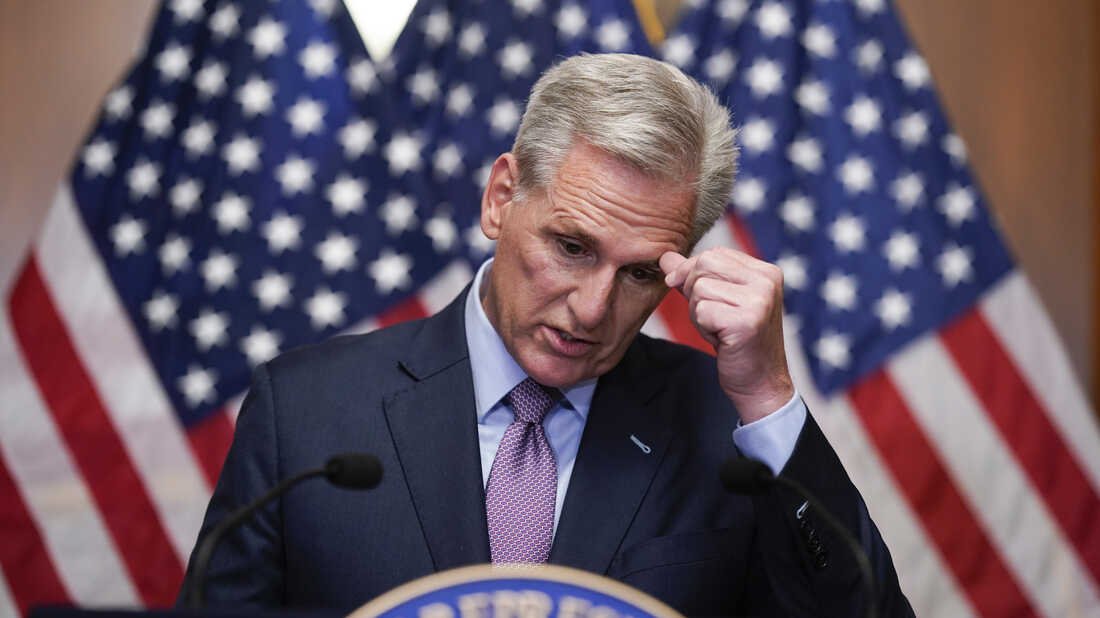What Does McCarthy’s Removal Mean For The 2024 Congressional Elections?
Photo via Associated Press
CALLA O’NEIL: The chaos in Congress as Republicans scrambled to find a replacement for House speaker Kevin McCarthy may bleed into the 2024 Congressional election cycle, as recent polls show its impact on voters.
On October 3rd, the House voted to remove Representative McCarthy as Speaker in a historic 216-210 vote. Eight GOP members joined 208 Democrats to strip McCarthy of the speaker’s gavel. This move is emblematic of the rapid rise of polarization in Congress, yet recent polls of American voters have proven that the turmoil is not contained within the doors of the Capitol.
A CNN poll conducted in the week following McCarthy’s removal showed disapproval of Republicans in Congress rising to 75 percent, despite staying steady in the 60s in recent years. A report from YouGov also indicates that the American public is placing more blame on Republicans for Congressional gridlock than ever before. 66 percent of U.S. adults surveyed said that conservative Republicans deserve at least “some” blame for gridlock (a 7 point increase since January), while 64% said the same about moderate Republicans (an 11 point increase).
Increased discontent with the Republican Party disrupts the GOP’s unprecedented recent strides in public opinion. A Gallup poll from earlier this year, prior to the ousting of McCarthy, indicated that 53 percent of Americans believed that the Republican Party would do a better job of keeping the country prosperous than the Democrats, and 57 percent believed Republicans would better protect the country from international terrorism and military threats.
The controversy surrounding Republicans since October has the potential to destroy the positive image that the GOP has worked to curate. With Republicans in the House already facing one of the narrowest majority margins in U.S. history, anything that leads to further popular distrust and dislike of the GOP could endanger the majority even more, with 2024 Congressional elections now only a year away.
“If the perception of disarray from the House were to paint the entire party, even the presidential candidate may suffer some vote loss from voters who are frustrated with the entire party,” says Kevin Wagner, a political science professor at Florida Atlantic University.
However, the loss of public trust is not the only challenge facing Republicans in the upcoming election. The termination of McCarthy as speaker also means the end of one of the GOP’s top fundraising assets, the Congressional Leadership Fund. The McCarthy-aligned super PAC raised $645 million under the leadership of the former speaker: about $215 million for the 2020 election, $350 during last year’s midterm races, and about $80 thus far for the 2024 cycle.
While the Leadership Fund will shift its alignment to follow the succeeding House speaker, members of the Republican Party are doubtful that the new leader will be able to inspire donations and confidence to the same extent that McCarthy could.
“Nobody can raise money like him,” said Rep. Kelly Armstrong, R-N.D. “And no matter who is the next speaker of the House, none of them can do what Kevin McCarthy did.”
After three weeks without a speaker, the House voted to elect Rep. Mike Johnson on October 25th. But, the damage may already be done. The 2024 elections will reveal whether the chaos in Congress will leave a lasting impact on the reputation and success of the Republican Party.
Calla O’Neil is a columnist for On The Record. She is a sophomore in the School of Foreign Service studying International Politics with a minor in Journalism.

